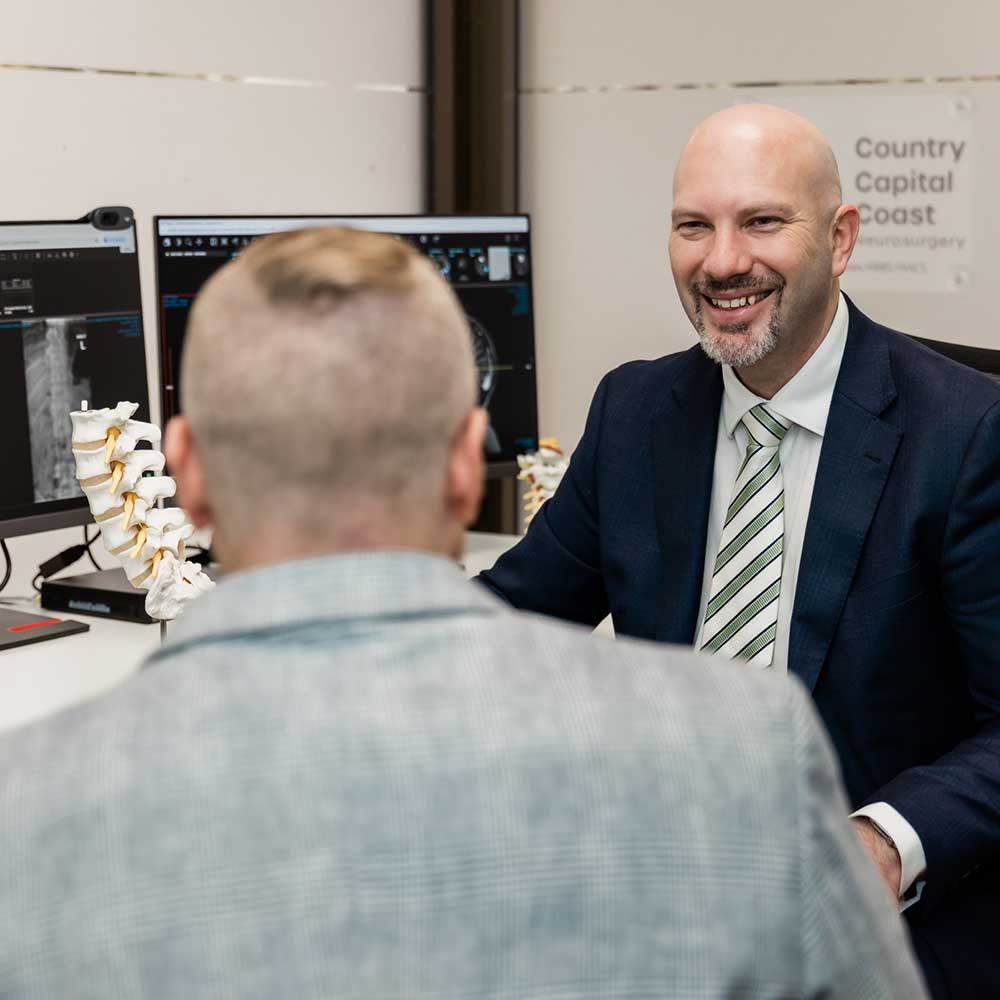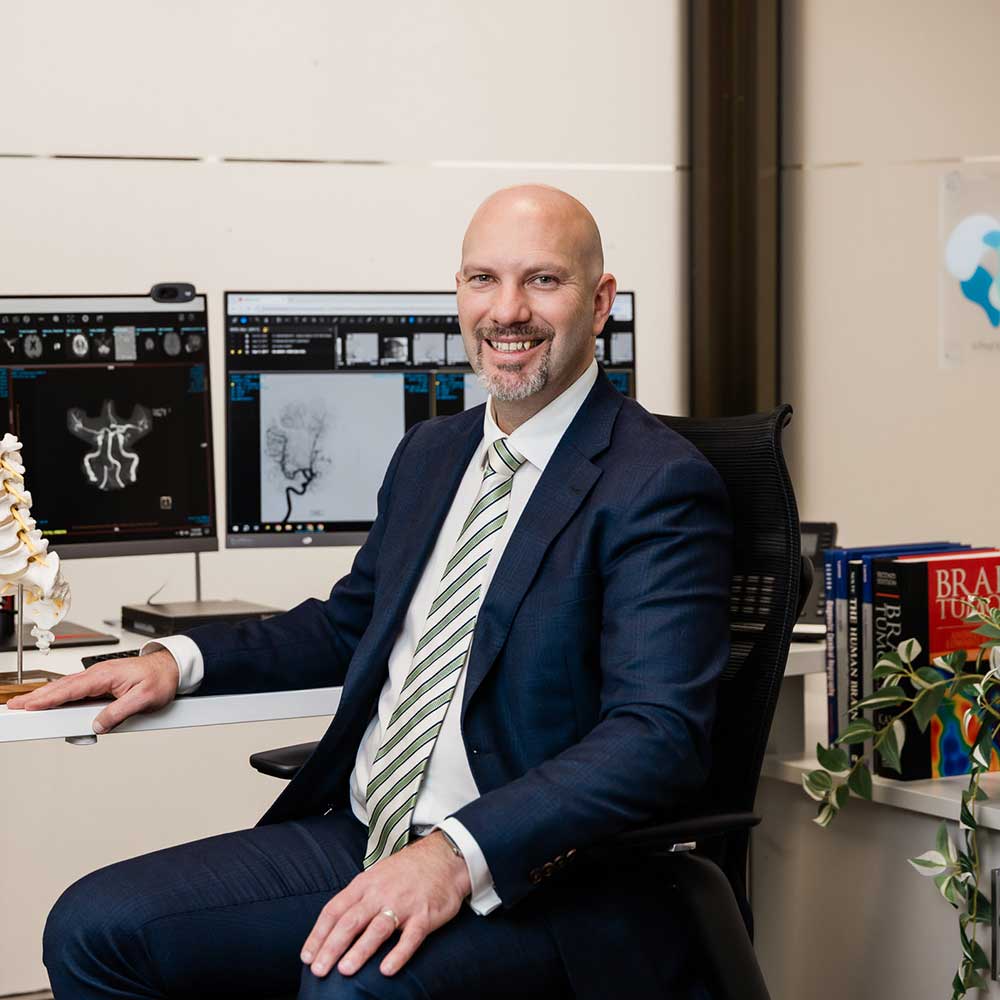The endoscope provides a clear, magnified view of the surgical area, allowing precise treatment while minimising disruption to surrounding brain tissue. Endoscopic brain surgery is commonly used for pituitary gland tumours, intraventricular cysts, hydrocephalus, and selected midline brain lesions, offering direct access through natural corridors. This approach is especially effective for conditions deep within the brain that would otherwise require a large “open” craniotomy.
A/Prof Mews has particular expertise in endoscopic pituitary surgery, used for tumours of the pituitary gland and skull base. This approach is performed through the nasal passages, avoiding external incisions altogether.
Endoscopic techniques are commonly applied in the treatment of:



Minimally invasive neurosurgery is not suitable for every patient or every condition, but when appropriate, it can make a profound difference to outcomes and recovery. These techniques combine the latest technology with meticulous surgical expertise, offering patients safer, more efficient treatment options.
A/Prof Peter Mews is uniquely positioned to deliver this care. His combination of dual accreditation in open and endovascular cerebrovascular surgery, and advanced training in endoscopic skull base surgery places him at the forefront of modern neurosurgical practice in Australia.